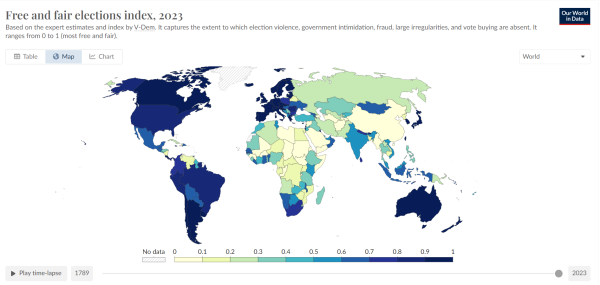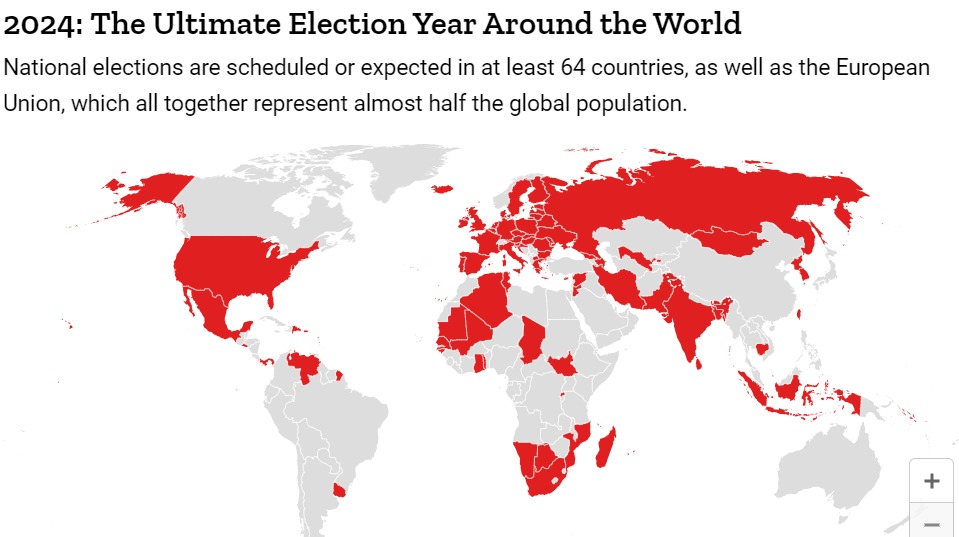Over 60 elections are occurring or have occurred globally in 2024, with many large countries hosting presidential and parliamentary elections. From India’s Lok Sabha and prime minister to the UK’s House of Commons to the American presidency, this year is going to bear witness to some of the largest political changes. As these elections have drastic impacts on domestic and global politics, many have posed the question of freedom and fairness in these elections.
Heather Lorenz, JD, is an AP Government and Politics teacher at Danbury High School, who was able to provide insight into the variety of elections systems used throughout the world. Lorenz explained that the US is unique in its process of the electoral college in which the public “casts its vote and then those electors use the votes to guide them in electing the president.” In addition, Lorenz gave the UK as an example of another form of democracy: a “parliamentary system, where essentially, a leader from the legislative branch is chosen to lead them all as prime minister.” Evidently, the myriad of elections occurring worldwide are each governed by their own systems of democratic election processes–some more democratic than others.

At the start of the year, Time magazine compiled a list of the plethora of important elections occurring in 2024. This list also includes the Freedom and Fairness Score of each nation’s elections. According to the organization that calculated these scores, the ratings are dependent on “election violence, government intimidation, fraud, large irregularities, and vote buying are absent.” The ratings are between 0 and 1 and are lower in countries with more frequent election interference and less overall democracy. The Democratic People’s Republic of Korea (North Korea), for instance, had a meager score of .14 as a result of ruler Kim Jong Un’s dictatorial regime. On the other hand, Belgium had a whopping score of .97 for its Chamber of Representatives elections this year. America, falls in between, with a freedom and fairness score of .83–far lower than many of its Western counterparts. Lorenz attributed this lowered score to “the fact that every state votes differently” as well as the “historical intimidation that has happened in certain states regarding the right to vote.”
With global politics and numerous domestic policies at stake for each country (and the European Union) holding an election this year, freedom and fairness scores are an integral measurement of the extent to which these elections are true democratic representations of the will of the people. Lorenz underscored the importance of these scores, adding that simple elections in 2016 led to rising authoritarianism both here in America as well as in countries like Italy and Belarus. Countries holding elections this year should seek to improve their scores, improving upon the aforementioned topics of election violence and voter intimidation. Such direct efforts from governments themselves, perhaps, will be the only way to establish strong democratic principles in each and every election occurring this year.





























